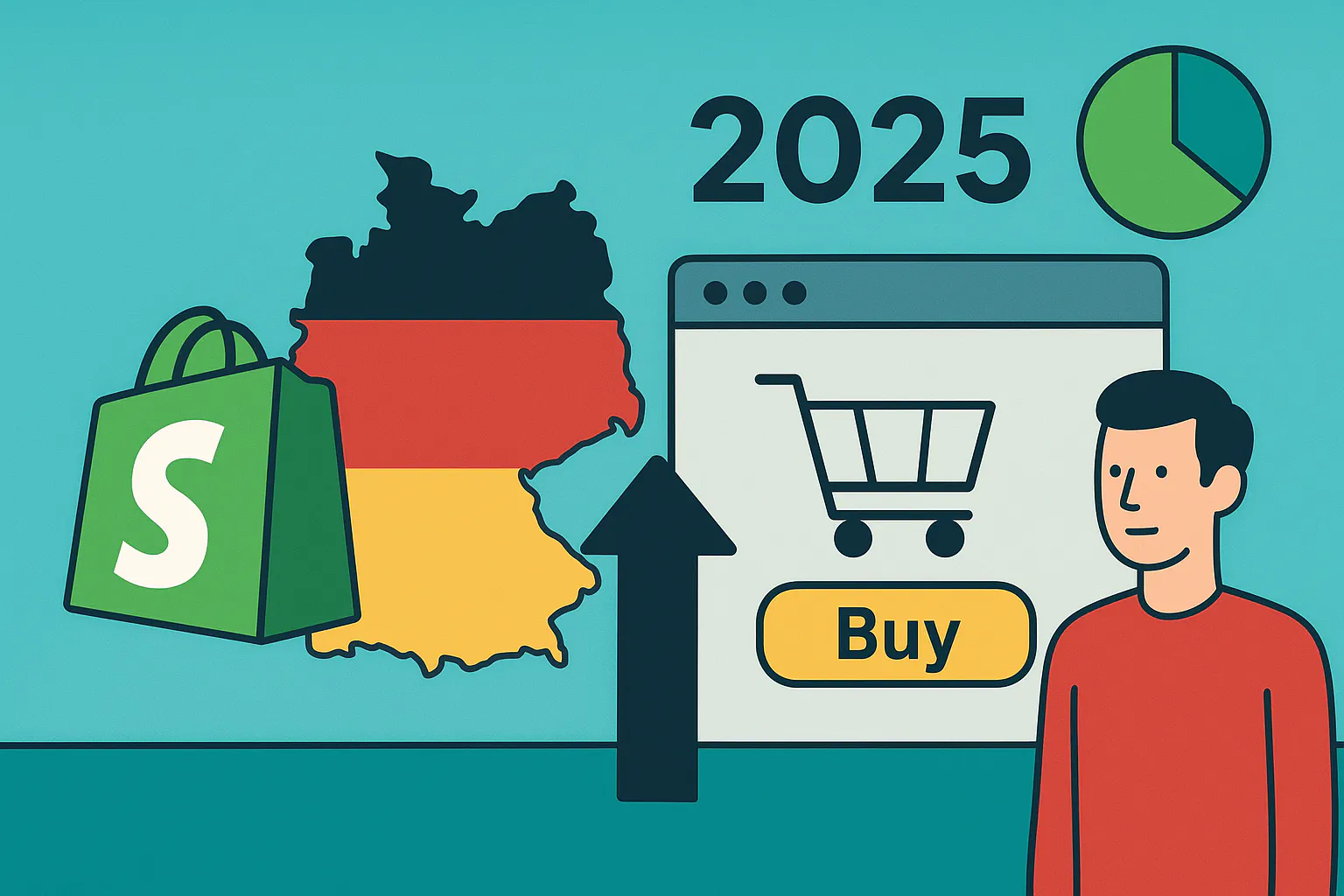Shopify in 2025: A Viable Strategy for the German Market?

The German e-commerce market has evolved into a brutal and fiercely competitive landscape, forcing businesses to re-evaluate their core strategies. The key question now is whether Shopify remains the right platform choice for 2025.
The challenges are clear: Amazon dictates consumer expectations, new competitors like Temu are engaged in a price war, and the uniquely demanding German shopper requires a delicate balance of value, sustainability, and flexible return policies. In this tough environment, simply having an online store is not enough. The strategic purpose of the chosen platform—and where Shopify fits—is more critical than ever.
The Battlefield: Price Wars and Brand Erosion
First, it must be understood that business models based on reselling generic, unbranded products and competing on price face a near-insurmountable challenge. It is functionally impossible to win a price war against Amazon. Its massive scale, sophisticated algorithms, and unparalleled logistics network create a machine built to find the lowest possible price and deliver it with maximum speed. Attempting to beat Amazon at its own game is a race to zero margin.
Then there’s Temu. This platform represents a fundamental disruption, not just another marketplace. By creating a direct pipeline from a factory in China to a consumer’s doorstep, it cuts out numerous middlemen. For a reseller of commoditized items, this is an existential threat, as it has conditioned a huge segment of the market to expect unbelievably low prices for everyday goods.
This is the reality of German e-commerce in 2025. The middle ground is evaporating. A business must either be a volume player at a massive scale or something else entirely. It is in defining that "something else" that Shopify's true value emerges.
Shopify’s Real Job: A Fortress for Brand Building
Shopify's role is best understood not merely as an e-commerce platform, but as a strategic tool. It is the anti-marketplace play. Choosing Shopify is a declaration that a business will not compete on price alone, but will instead compete on brand.
This is its unassailable strength, especially for Direct-to-Consumer (D2C) businesses. Shopify provides what no marketplace ever will: control. Businesses own their storefront, their brand’s story, and most importantly, their customer data. This allows them to build a direct relationship, foster loyalty, and create a community. Such a connection is impossible for a seller listing on Amazon, essentially renting space within an empire and playing by its rules.
The German brands excelling on Shopify are not just selling a product; they are selling a story, a solution, or a lifestyle. Consider the D2C food brands built around recipes and content, or the wellness brands that offer expert advice and community support. The product becomes the monetization of the trust they have built. That is a defensible business model, one that can command a premium and build loyalty that makes customers think twice before price-checking on Amazon.
For a traditional B2C retailer, the path is more difficult. Simply placing a reseller catalog on a Shopify site is insufficient. To survive, these retailers must adopt the D2C playbook. They must become trusted curators in a specific niche, adding value through expert content, exceptional service, and community building. They have to give customers a reason to seek them out specifically, not just a place that sells things.
The New Frontier: The B2B Awakening
Perhaps the most significant emerging battleground is B2B commerce. Germany’s Mittelstand, the backbone of the nation's economy, is undergoing a forced digital transformation, driven in large part by a government mandate on e-invoicing. This has awakened a massive, underserved market.
Historically, this has been the territory of complex, German-engineered platforms like Shopware—powerful and deeply localized. Yet Shopify is making a surprisingly clever play in this space. Its B2B tools, especially on Shopify Plus, are designed with a consumer-grade user experience that is clean, intuitive, and self-service. This approach is built for the next generation of B2B buyers who manage million-euro budgets at work but are accustomed to the seamless experience of buying sneakers on their phone in their personal time. By "consumerizing" the B2B buying process, Shopify is flanking the established players. It is a long-term, but highly intelligent, strategy.
The Verdict
Returning to the central question: Is Shopify still relevant for the German market in 2025? The answer is yes, more than ever—but only for businesses that understand its specific purpose. It is not a magic wand for competing with Amazon or Temu on price. It is a specialized weapon for building a brand.
The platform's strategic value can be summarized as follows:
For an aspiring D2C brand, it remains the undisputed champion—the essential toolkit for building a business that can stand on its own.
For a traditional B2C retailer, it offers a potential lifeline, but one that requires a fundamental strategic shift towards niche curation and brand-building.
For businesses in the B2B sector, it is the ambitious challenger that warrants very close observation.
Ultimately, the choice of platform reflects the fundamental business model a company wishes to pursue. Will it be a commodity seller, constantly fighting for pennies in a marketplace it doesn’t control? Or will it build an asset—a brand with a direct line to a loyal community of customers? In the brutal retail landscape of 2025, the latter path offers a more sustainable model for growth.


